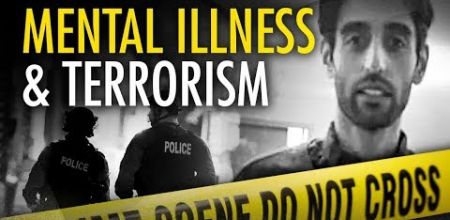
The recent revelation that the individual who carried out multiple stabbings in the city of Manchester in the United Kingdom on New Year’s Eve had mental health issues should come as no surprise, like reported by forbes.com.
The stabbings are currently being treated as a terrorist incident. That the event occurred near the Manchester Arena bombing of 2017, where 23 people were killed and 139 wounded, is tragic.
Over the years, we have seen multiple individuals with mental health issues, and with a background of domestic violence or criminality, being drawn into committing wider acts of terrorism for extremist or political motives.
From 1998 to 2015, for example, fifteen cases occurred where offenders convicted of terrorism had a history of mental health issues. Some of these individuals were known by authorities because they had been previously sanctioned under the Mental Health Act 1983, or had been transferred to a secure mental health unit. Others had mental health issues that were disclosed during the trial itself.
More recently in 2018, two individuals prosecuted for terrorism had a history of mental health issues, including post-traumatic stress disorder. One individual convicted in 2016 had mental health problems that contributed to what was presented in his trial as ‘poor judgement’.
On Wednesday the British Transport Police chief constable, Paul Crowther, stated that individuals with existing mental health issues are particularly vulnerable to be targeted for radicalization, and stressed a closer working was needed between police and the mental health agencies to combat this threat.
Indeed, many prolific recruiters have targeted those with mental health problems in the past. Tanvir Hussain, for example, who was arrested in 2006, targeted at least three vulnerable prisoners with specific mental health needs whilst in jail in 2010. He did this by preaching through his cell window and converting them to his extreme interpretations of Islam, which prison intelligence suggested were in line with his terrorist beliefs and conviction. As a result, Hussain was segregated at HMP Frankland from April to October 2010. The Supreme Court later ruled his segregation was not lawful after initial periods of 72 hours.
There is no doubt that the study of mental health and its implications has an important role to play in both the prevention of, and the response to, terrorist attacks. Research by European Psychiatry has described a reverse relationship than the one that is usually studied – that by engaging in terrorist activities, attackers could develop mental disorders. Therefore, routine health surveys and censuses can be modified to ask about aspects of violent radicalization and group cohesion as relevant health and social issues, and not only as a criminal justice issue.
The International Classification of Diseases and Center for Disease Control, for example, now has codes for deaths and injuries from terrorist acts: this offers a system of monitoring that is aligned to other public health surveillance programs. Its use may offer one mechanism to look objectively at global terrorism-related deaths and the circumstances in which they occur. As such the most severe effects of violent radicalization (deaths and injuries) would be easier to monitor, and could be linked to other contextual and demographic data at both ecological and local levels.
These consequences can be mapped using public health approaches. The areas of epidemiology, psychology, sociology and other behavioral sciences can contribute important data towards prevention strategies, and have been used in public health programs in the past to address violence. Such alternatives do not condone the conduct of terrorists, but aim to investigate the wider determinants of recruitment in vulnerable populations, and identify the pathways to radicalization.
This would help us move beyond simply considering evidence from convicted terrorists or from criminal justice analysis.


